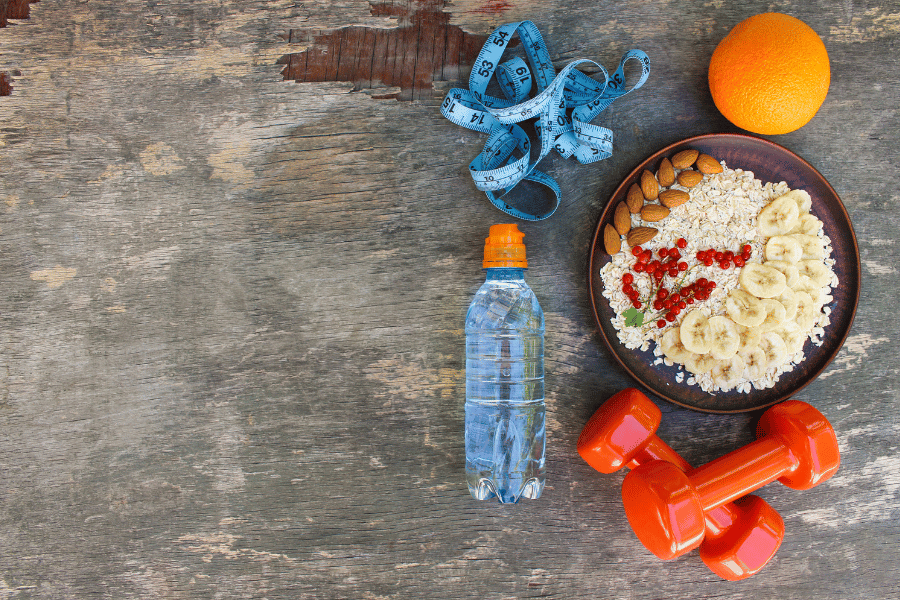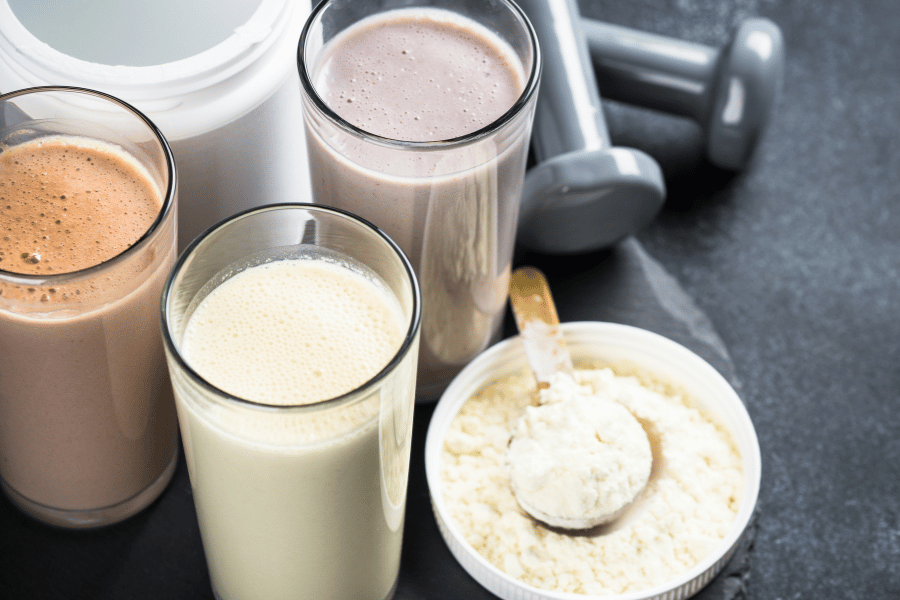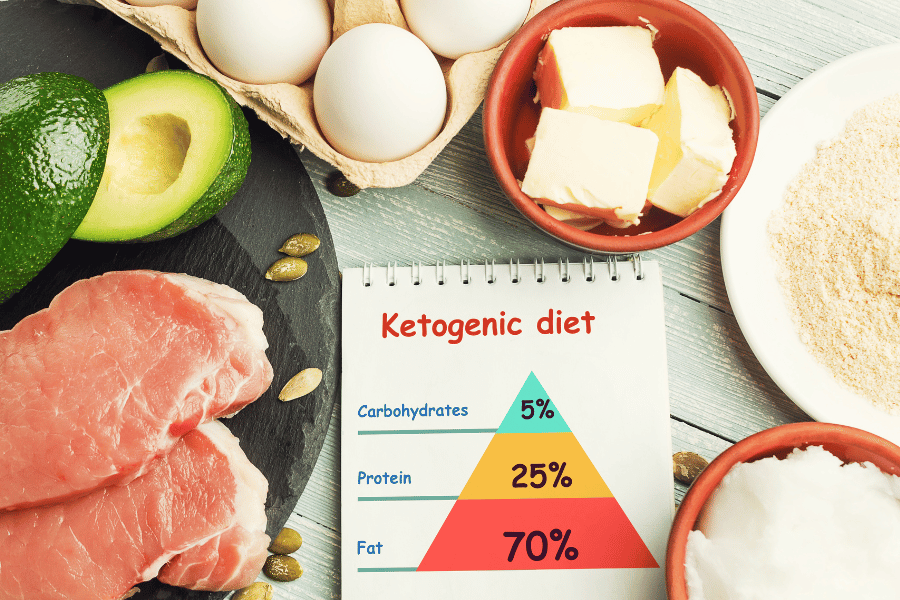Protein for weight loss is a significant factor in the journey towards a healthier, leaner body. It’s not just about cutting calories; it’s about making every calorie count. Protein plays a pivotal role in this process, owing to its ability to aid in muscle preservation, boost metabolism, and increase satiety. This article, “2024 Protein for Weight Loss: 5 Essential Tips to Shed Pounds,” aims to explore the multifaceted role of protein in weight loss, debunking myths, and providing practical advice for integrating protein into your diet effectively.
Understanding the dynamics of weight loss involves a complex interplay of various factors including dietary habits, exercise, and underlying health conditions. However, the focus of this discussion will be predominantly on how incorporating protein effectively can accelerate weight loss. This article serves as a comprehensive guide, offering insights from nutritional experts and substantiated research, to assist you in making informed decisions about your protein intake for effective weight loss.

The Role of Protein in Weight Loss
The importance of protein in weight loss cannot be overstated. It’s a powerhouse nutrient that plays a crucial role in the process. Here’s how:
- Satiety and Metabolic Boost: Protein is more satiating than carbohydrates or fats, meaning it can keep you feeling full for longer. Dr. Maxine Smith, a renowned nutritionist, explains, “Protein-rich foods require more energy to digest and metabolize, which means you burn more calories processing them.” This phenomenon, known as the thermic effect of protein, is a key component in boosting metabolism and aiding weight loss.
- Muscle Preservation: During weight loss, it’s vital to preserve lean muscle mass, and protein is essential in this regard. Fitness expert John Doe remarks, “While losing weight, your body might turn to muscle for energy, but with adequate protein intake, you can protect your muscle mass.” This preservation of lean muscle mass ensures that the weight lost is primarily fat, not muscle.
- Improved Body Composition: Consuming enough protein can lead to a better overall body composition. It helps in building and maintaining muscle, which in turn increases your basal metabolic rate. This means you burn more calories even at rest.
Integrating an appropriate amount of protein in your diet is thus crucial for effective and healthy weight loss. The subsequent sections will delve into the best protein sources, ideal intake amounts, and practical ways to incorporate protein into your diet.

Choosing the Right Protein Sources
Selecting the right protein sources is paramount in your weight loss journey. It’s not just about quantity, but also about quality. Here are key points to consider:
- Lean Protein Sources: Emphasizing lean protein is crucial. Registered Dietitian Jane Appleseed advises, “Choose protein sources that are low in saturated fat to support heart health.” Excellent options include chicken breast, turkey, fish, tofu, legumes, and low-fat dairy products. These foods provide the necessary protein without excessive calories or unhealthy fats.
- Diverse Protein-Rich Foods: Variety is not only the spice of life but also a key to a balanced diet. Including a range of protein sources ensures you get a comprehensive array of amino acids, which are the building blocks of protein. Some recommended foods high in protein for weight loss include grilled salmon, lentil soup, Greek yogurt, quinoa, and almonds.
- Debunking Misconceptions: It’s important to address common myths about protein sources. For instance, many people believe red meat is bad for weight loss. While it’s higher in fat than other proteins, lean cuts of beef or pork can fit into a weight-loss diet. Similarly, plant-based proteins like beans and lentils are not just for vegetarians; they are excellent protein sources for anyone.
Making informed choices about your protein sources can significantly impact your weight loss success. By focusing on lean, varied, and nutritious protein options, you can enjoy delicious meals while working towards your weight loss goals.
Protein Intake and Portion Control
Managing the amount of protein you consume is as important as choosing the right sources. Here’s how you can balance protein intake and portion control for effective weight loss:
- Determining Ideal Protein Intake: The right amount of protein depends on your body weight, activity level, and weight loss goals. A general guideline, as per nutrition expert Dr. Linda Roberts, is to consume approximately 0.8 to 1 gram of protein per kilogram of body weight. For those actively trying to lose weight, slightly increasing protein intake, while keeping calorie count in check, can be beneficial.
- Practical Tips for Portion Control: Portion control is key in managing protein consumption. A helpful tip is to visualize portions: a serving of meat should be about the size of a deck of cards. Integrating protein-rich foods like Greek yogurt or a handful of nuts can also satisfy hunger without overeating.
- Balancing Protein with Other Nutrients: While protein is essential, it’s important to balance it with other nutrients. Nutritionist Emily Johnson states, “Incorporate a variety of fruits, vegetables, whole grains, and healthy fats alongside protein sources for a well-rounded diet.” This ensures you get all the necessary vitamins and minerals while maintaining a calorie deficit for weight loss.
By understanding and practicing these principles of protein intake and portion control, you can make more informed choices that contribute to your weight loss journey in a healthy, sustainable way.

Incorporating Protein into Your Diet
Integrating more protein into your diet doesn’t have to be challenging. Here are practical suggestions to ensure you’re getting enough protein, in a way that fits your lifestyle and preferences:
- Protein-Rich Meals and Snacks: Start by including a protein source in every meal. For breakfast, consider eggs or Greek yogurt. For lunch and dinner, lean meats, fish, or plant-based proteins like lentils and chickpeas are great options. Snacks can include a handful of nuts, cheese, or a protein shake.
- Sample Meal Plans: A sample day could start with an omelette with spinach and feta cheese, followed by a grilled chicken salad for lunch, and salmon with quinoa and steamed vegetables for dinner. Snacks could include a protein bar or a smoothie with protein powder.
- Vegetarian and Vegan Options: For those following a plant-based diet, incorporating enough protein can be a concern. Dietitian Alice Green suggests, “Explore protein-rich plant foods like tofu, tempeh, edamame, and seitan. Legumes, nuts, and seeds are also excellent sources.” Plant-based protein powders can also supplement your intake.
- Creativity in the Kitchen: Get creative with how you use protein in your recipes. Try using Greek yogurt in place of mayonnaise, add beans to soups and salads, or use nut butters as a spread on whole-grain bread.
By including a variety of protein sources and being mindful of how they fit into your overall diet, you can easily and deliciously boost your protein intake, supporting your weight loss goals.
Protein Supplements and Weight Loss
Protein supplements can be a convenient and effective addition to a weight loss plan, especially for those who struggle to meet their protein requirements through food alone. Here’s what you need to know:
- Role in Weight Loss: Supplements like protein powders can help in managing hunger, increasing satiety, and preserving lean muscle mass. Fitness expert Jake Thompson notes, “Protein supplements can be a practical way to ensure adequate protein intake, especially for people with busy lifestyles.”
- Types of Protein Supplements: There are various types of protein powders available, including whey, casein, soy, pea, and rice protein. Each has its own set of benefits. Whey protein is popular for its quick absorption, making it ideal post-workout. Plant-based options like pea or soy protein are excellent for vegetarians and vegans.
- Effective Use of Supplements: To use protein supplements effectively, consider the timing and quantity. Post-workout is a great time for a protein shake to aid muscle recovery. However, it’s important not to over-rely on supplements and to get most of your protein from whole foods. Dietitian Sarah Johnson advises, “Use protein supplements as an adjunct to your diet, not as a replacement for whole food protein sources.”
- Quality Matters: When choosing a protein supplement, look for high-quality products with minimal added sugars and artificial ingredients. Checking for third-party testing and certifications can also ensure product quality and safety.
Incorporating protein supplements can be a valuable part of a weight loss strategy, offering convenience and ensuring adequate protein intake. However, it’s essential to use them wisely and as part of a balanced diet.
FAQs on Protein for Weight Loss
- How Much Protein Do I Need for Weight Loss?
- The amount varies depending on individual factors like weight, activity level, and specific goals. As a general rule, aim for 0.8 to 1 gram of protein per kilogram of body weight, but this may increase if you’re actively trying to lose weight and build muscle.
- Can High Protein Diets Harm Kidney Health?
- This is a common myth. In healthy individuals, a high protein diet is not harmful to kidney function. However, those with pre-existing kidney conditions should consult a healthcare professional before increasing protein intake.
- What Are the Best Plant-Based Protein Sources?
- For vegetarians and vegans, excellent protein sources include lentils, chickpeas, tofu, tempeh, edamame, and quinoa. Nuts and seeds, as well as plant-based protein powders, are also good options.
- How Do I Balance Protein with Other Nutrients in My Diet?
- While focusing on protein, ensure you include a variety of other foods like fruits, vegetables, whole grains, and healthy fats. This balance is crucial for overall health and to ensure you get all necessary nutrients.
- Is It Necessary to Use Protein Supplements?
- Supplements are not essential but can be a convenient option for those struggling to meet protein needs through diet alone. Remember to choose high-quality supplements and use them to complement, not replace, whole food sources.
- What Are Some Simple Ways to Add More Protein to My Diet?
- Include a protein source in every meal, opt for snacks like Greek yogurt or a handful of nuts, and consider adding protein powders to smoothies or oatmeal.
- Can Too Much Protein Lead to Weight Gain?
- Yes, like any nutrient, consuming too much protein can lead to weight gain if it contributes to excess calorie intake. Balance and moderation are key.
Related Posts :
- En 5 Steps On How To Drink Apple Cider Vinegar For Weight Loss In 1 Week For Busy Professionals P3z9
- En Slim Sculpt Keto Acv Gummies W30g
- En Weight Loss Potential With Shark Tanks Keto Gummies Br9o
- En Kyle Richards Weight Loss Transformation E65r
- En Transformative Tactics Behind Jesse Plemons Weight Loss 4kv2